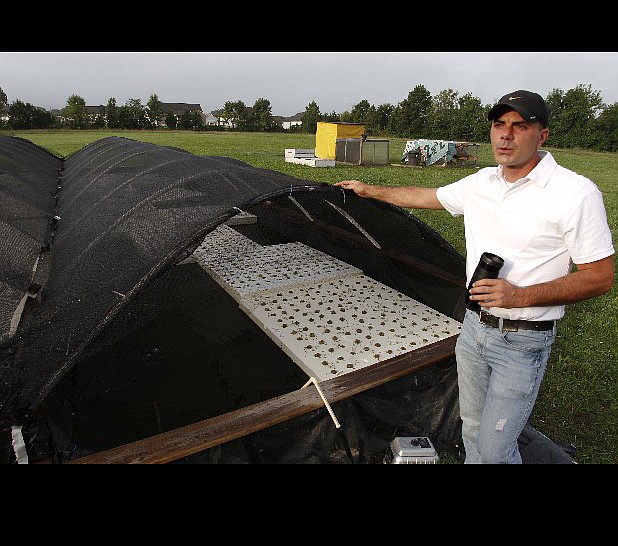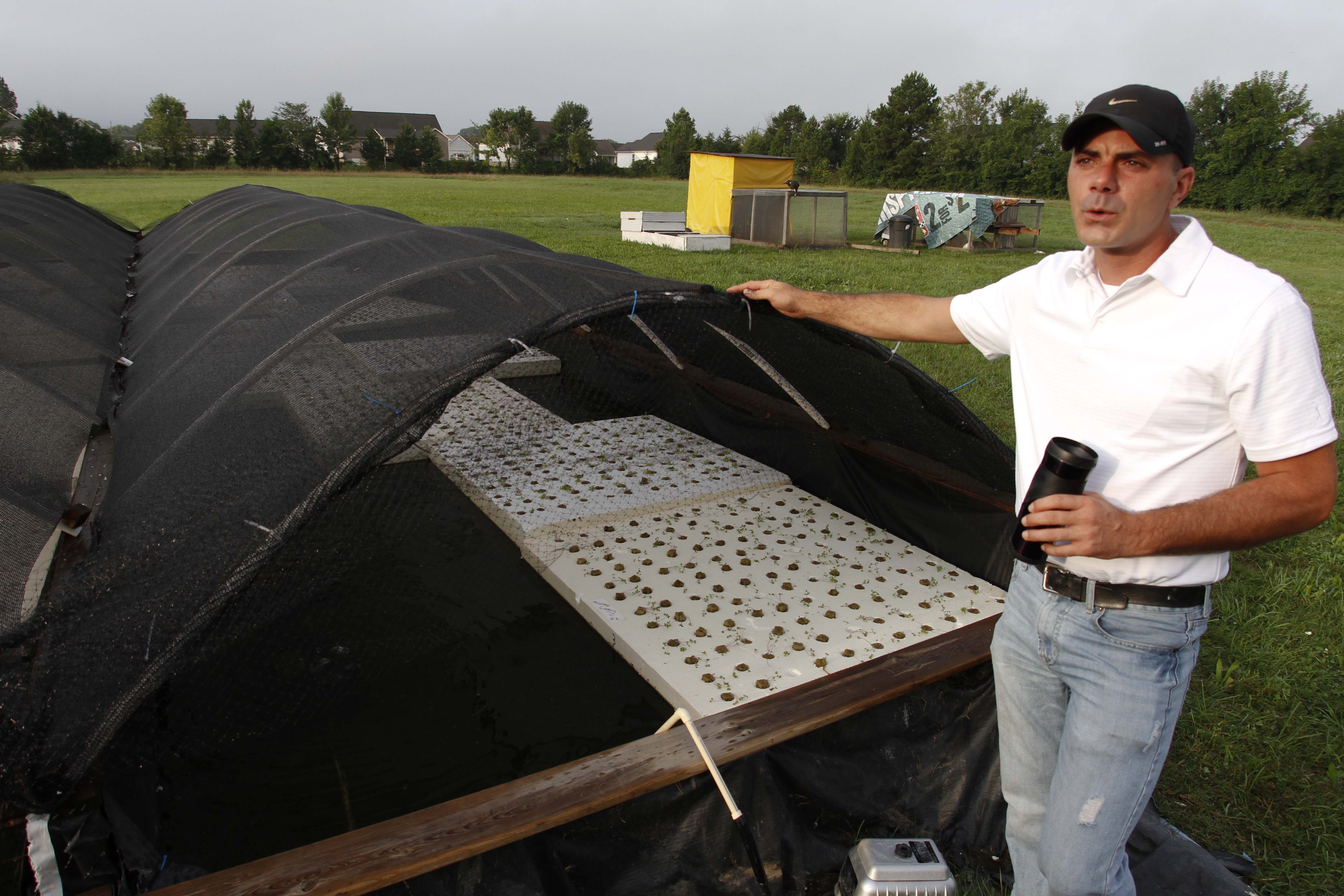VIDEO
This story is featured in today's TimesFreePress newscast.
The world's first portable, scalable, stand-alone aquaponics system squishes a 2.5-acre farm into a semitrailer.
The shipping container holds as many as 3,100 fish and 13,000 plants, and one 30- by 40-foot system can feed 500 people every week.
It's solar-powered. It's self-contained. And it will be made in the Chattanooga region.
Former oil executive Ryan Cox founded HATponics in March to manufacture and sell the cutting-edge agriculture systems. The company will be headquartered in Chattanooga and open a manufacturing facility in the region. Cox plans to add 25 new employees to his current 11 and put the first commercial series on the market in December.
Cox's Portable HAT Farms include a mix of rock, water, fish and plants enclosed in a balanced ecosystem. The fish fertilize the plants. The plants filter the waste out of the water. It's a stand-alone system that could go anywhere, Cox said.
Drop a box in an empty parking lot in the inner city. Or put them in war zones so troops can eat fresh food instead of Meals Ready-to-Eat. Set one up in an impoverished Third World community.
"The idea was to bring a farm to a farmer, versus bringing a farmer's crops to a population," he said. "Ideally, instead of shipping three truckloads of rice, we ship one truckload of farm -- one farm in a box -- and the farm in a box then provides the equivalent of that truckload of rice indefinitely, versus in a consumable format."
HATponics is the sister to Inner City Aquaponics, a 2-year-old venture by Cox that offers educational aquaponics programs in about 1,000 high schools.
"Our altruistic vision started by wanting to do missionary-style programs," he said. "But in order to fund a large-scale missionary program, we needed to have secured finances. And the best way was to have a commercial arm."
HATponics systems can produce herbs, tomatoes, cucumbers, strawberries, peppers and melons. At the company's research farm in Rossville, Cox grows bass, tilapia, catfish, coy, blue gills and cold water perch.
The company is one of 20 competing in Tennesee's first state-wide demo day on Tuesday. The top 10 startups will be eligible to participate in The Tenn, the state's master business accelerator program that's launching this year.
HATponics already has its seed money, but is working toward a second round of investment totaling between $35 million and $40 million, Cox said. He's working with federal governments, cities and international relief organizations like the United Nations. He's already got some contracts signed.
Right now, Cox maintains full equity in the company, and he hopes to keep a controlling share moving forward. He may take the company public in 2014.
Local agricultural experts are cautiously optimistic about the HATponics idea. Charles Lancaster, Catoosa County's University of Georgia county extension coordinator, said the cost may be the biggest barrier.
"To me, theoretically it sounds very feasible," he said. "The cost may be the deal. You may be able to grow that much food, but what's it gonna cost you?"
One Portable HAT Farm retails for between $135,000 and $140,000, delivered anywhere in the world, Cox said.
Beside the cost, the technology required to keep a system like HATponics running will need to be robust, Lancaster pointed out.
"If anything goes wrong, like if the fish die, there goes the whole system," he said. "Or if the pumping system goes down or something like that, then the whole thing is gone."
Cox said the system uses groundbreaking techniques, and all manufacturing will be in-house in order to protect the science behind the system.
"While it looks very simple, there's a lot of science going on right here," he said. "It's extremely advanced science that allows us to perfectly control aspects of our water and produce vegetables and fish within a balanced ecosystem."
Hamilton County University of Tennessee extension agent Tom Stebbins said he thinks it will be a challenge for Cox to break into the mainstream agriculture market, but expects there is a niche for his products.
"It's like working from the inside out instead of the outside in," he said. "Traditional agriculture is the outside in and we can't get away from that. It's huge and it feeds millions of people. But who knows. It takes people like Ryan to push it."
Lancaster said he hopes the Portable HAT Farms work.
"You never know when the next real thing is going to come up," Lancaster said. "If you don't try, you never know. This may be it."
Contact staff writer Shelly Bradbury at sbradbury@timesfreepress.com or 423-757-6525.

